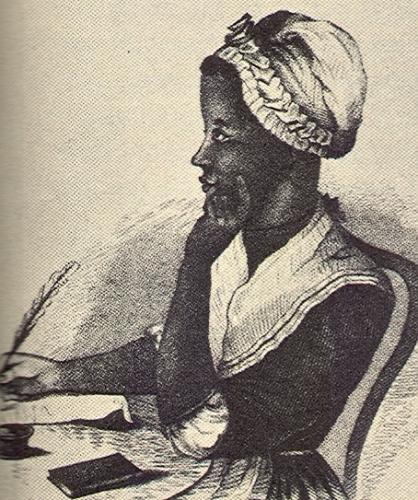 |
LITR 4231 Early American
Literature Sample Research Posts 2014 (research post assignment) Research Post 2 |
 |
Josh Cobb
American Prometheus
Thomas Paine is perhaps the most under-appreciated figure in
American history. It is widely believed that without the fervor of Paine’s
writing, the revolution would have never taken hold. His passion for revolution
and social reform go un-rivaled, and his writings continue to inspire readers
today. However, despite being a major mover in the American Revolution, the fate
of Paine was less than idyllic; after helping to spread the idea of
enlightenment across the colonies, he reaped very little of its rewards. After
the dust settled, Paine found himself lost in relative obscurity. He was largely
ignored and omitted from the American pantheon. He represents an American
Prometheus; with his writing, he endowed the fire of enlightenment to the
American population at large, and ultimately he suffered a fall from grace in
the political field.
The seed of enlightenment was in full bloom during the time of the
American Revolution. With this movement of knowledge came a re-envisioning of
the socio-political landscape on a global scale. Paine and the other founding
fathers drew from the enlightenment writers of the time, such as Locke, Mills,
and Hobbes, all of whom prescribed their own brand of political and social
freedom. Their ideas of just government, political representation, and the
nature of freedom spoke volumes to the largely oppressed population of the time.
Paine firmly believed in their philosophy of the Enlightenment. He took these ideas
and used them as inspiration for his own revolutionary rhetoric. Paine’s
peculiar version of Enlightenment philosophy was deemed “radical enlightenment”
due to his antagonistic relationship with the existing powers of his time. It
was this vein of radical Enlightenment which empowered Paine to write his
passionate pieces of liberty and autonomy, and it was these works which he used
to spread the philosophy of the Enlightenment throughout the American colonies.
Paine showed himself as a selfless individual completely supportive
of the revolutionary movement. He was very much a pioneer during the revolution,
often being accredited as being the true instigator of the colonial secession
from England. He wrote extensively on an independent colonial nation free of
Britain. One of such works was his perhaps most known title, Common Sense.
When this piece was written, it was published anonymously and without
copy write.[1]
Because of this, Paine received next to nothing for this major contribution;
this alone speaks volumes of his dedication to the cause. Without this
monolithic piece of American literature, it is likely that the morale of the
American people would not have been able to be maintained, and the revolution
would have been in jeopardy. Even John Quincy Adams famously said of the work
that “[it] crystallized public opinion and was the first factor in bringing
about the Revolution.”
It is because of this piece that Paine became famous on an international scale,
but his fame did not come without consequence.
During the revolution, Paine became an international figure. He was under
constant surveillance by the British, who believed him to be the primary
instigator of colonial secession. He had been effectively charged with
“sedition” by the British Parliament. After leaving the country, and missing his
court-date, he was banished by parliament. Troubles with the established
government followed Paine into France, and while living in the newly formed
French Republic he narrowly escaped execution on multiple occasions. The first
of these incarcerations he was liberated by James Monroe. Upon returning to
France post-revolution, he was imprisoned yet again while a member of the French
Assembly for his refusal to agree with the Jacobins. On this occasion he
asserted that he was denied bail by a newly empowered George Washington. It
seemed that wherever he looked, Paine could not find political asylum for his
views.
Works Cited
Maurice Bisheff. (2012) Bulletin of
Thomas Paine and Friends, 7. Web, 19 Apr. 2014 Retrieved from
http://www.thomas-paine-friends.org/bisheff-maurice_paine-spinoza-and-the-radical-enlightenment-2012-07.pdf
Elbert Hubbard. (1919) Little Journeys to
the Homes of Great Reformers. Web, 19 Apr. 2014.
Retrieved from
http://www.thomas-paine-friends.org/hubbard-elbert_thomas-paine-1919.html
Thomas Paine, Letters to George Washington. Web, 19 Apr. 2014. Retrieved from http://www.thomas-paine-friends.org/paine-thomas_letter-to-george-washington-1796-01.html
|
|
|
|

